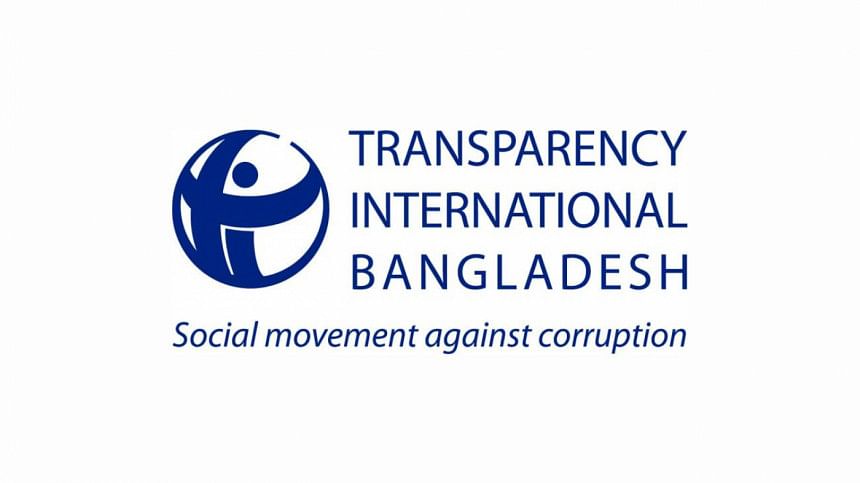TIB on ACC Hearings: 3 out of 4 complaints unsolved

About three-quarters of the complaints against 12 public service-oriented institutions filed during Anti-Corruption Commission's mass hearings have not been disposed of, a Transparency International Bangladesh report revealed yesterday.
The TIB identified the institutions' non-cooperation, corruption and lack of initiatives as the main reasons behind the delays.
At ACC's 13 mass hearings between January, 2015 and June, 2016, people filed 181 complaints against institutions like upazila land offices, Palli Bidyut Samity offices, Rajdhani Unnayan Kartripakkha and sub-register's offices. Of those complaints, 132 remain undisposed.
The TIB report cited many complainants who blamed the ACC along with the institutions concerned for their lack of follow-up activities to dispose of the complaints.
The report on the effectiveness of ACC's mass hearings was disclosed during a press conference at TIB's Dhanmondi office in the capital.
The graft watchdog conducted the study between December, 2016 and August, 2017.
The researchers interviewed 195 complainants who participated in the hearings but 181 of them had valid complaints. It also spoke to 51 officials of the institutions concerned and deputy commissioners, additional deputy commissioners, and upazila nirbahi officers.
Forty-three percent of the complainants, who sought services after the hearings, faced even more difficulties. The authorities misbehaved, showed non-cooperation and demanded bribes. Some even said they were threatened by police.
Complaints at hearings prompted institutions like upazila land offices, Palli Bidyut Samity offices, Rajuk, settlement offices, and sub-register's offices to improve their services. But some officials still lack professionalism, said the report.
Over 130 complaints were made against land-related service providers. The complaints included demanding bribes, harassing service seekers, neglecting duty, misbehaving with service seekers and fraudulent activities.
Some of the complaints were about land grabbing through muscle power and fraudulence, it added.
Although 78 percent of the complainants were assured of solutions at the hearings, only 14 percent of them later said the processes for solving their problems were underway.
However, several positive steps were taken by the public service institutions after the mass hearings, the report added.
For example, while 54 percent of the institutions had visible information boards before the hearings, 77 percent had them after the hearings.
Some other improvements included archiving documents (from 60 percent to 77 percent institutions) and receiving complaints over phone (from 40 percent to 58 percent institutions).
The report also pointed out some challenges in arranging mass hearings. They include influential quarters like politically-linked individuals and brokers threatening the participants, lack of awareness about the hearings, and lengthy speeches by designated guests.
The watchdog recommended authorities to take steps to ensure that the process of addressing a complaint does not hamper when an official is suddenly transferred.
It also recommended that the ACC spread awareness about mass hearings, incorporate local non-government organisations, and ensure presence of officials concerned at the hearings.
Speaking at the press conference, TIB Executive Director Iftekharuzzaman said successful mass hearings can generate people's trust.
He also said institutions providing public service have to take steps if they want to reduce people's distrust.

 For all latest news, follow The Daily Star's Google News channel.
For all latest news, follow The Daily Star's Google News channel. 








Comments